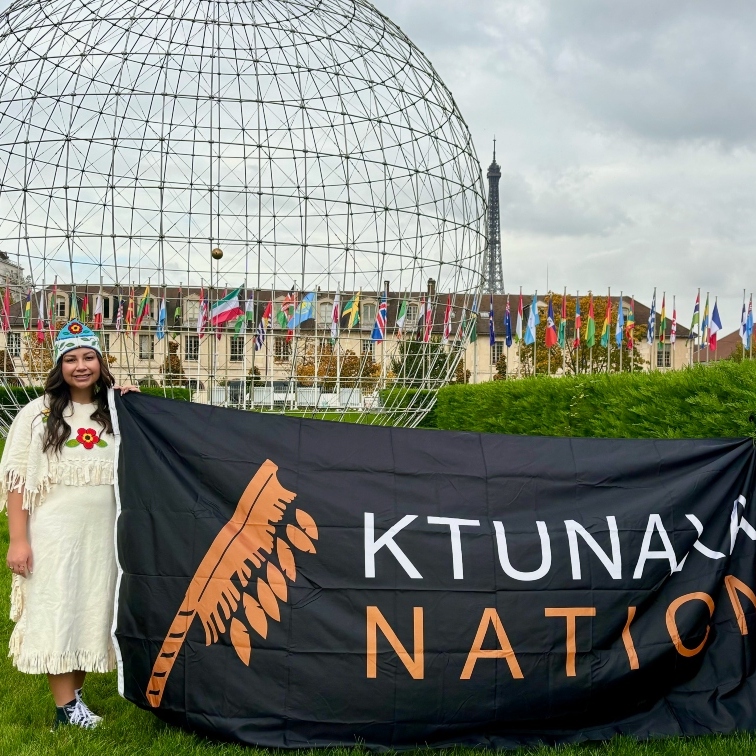A chat with David Walls
As the new president and CEO of College of the Rockies, David Walls offers insight into the educational institution in this Q&A

David Walls has recently taken over as president and CEO of COTR. — Photo courtesy COTR
David Walls started his new position as president and CEO of College of the Rockies (COTR) in August of 2013. After his first semester he took some time out of a busy schedule to chat with Kootenay Business about the college, its strengths and its influence around the world.
How was your first semester at COTR?
It was very busy (laughs). As you can imagine I spent a lot of time getting to know the organization and the community. I’ve been meeting people and looking at what we do, how well we’re serving the community, and generally investing my time in that fashion.
Tell us about your experience and what brought you to COTR.
I have 30 years' experience in post-secondary education. I began as an instructor at SAIT Polytechnic; was there for about 19 years. I left there as a dean and went to SIAST, the Saskatchewan Institute of Applied Science and Technology, and was there for 13 years, including seven years in the role of provost and vice-president academic. I wanted to continue that progression into a president's role and the opportunity here in the Kootenays and at College of the Rockies was attractive, so I ended up applying.
How would you describe the atmosphere of COTR?
I find it’s a very positive climate here at the college. The staff are first-rate and put a lot of work and effort into what they do. Principally, the college is clearly student-focused in terms of making sure the needs of the students are met. But, secondly, it’s also very conscious of the needs of the community itself—particularly the business community in respect to what the labour market needs and where the skill shortages are. I think the college does outstanding work.
What would you consider COTR's greatest strengths in regards to serving students?
There was a global survey that was done of students that are studying abroad—in our case about six per cent of our students are international students. Those students were surveyed and College of the Rockies came up as number 1 in the world in terms of how students perceived their relationship with the college . . . If you ask our international students why we’re number 1 they’ll say that we respond much faster than anybody else. So, if we get an inquiry we respond within 24 hours, and do that consistently, and begin to engage those students.
What are some of the challenges you anticipate?
We serve a fairly small demographic, about 80,000 people, so that will always be a challenge for us. Right now I think maybe 60 to 65 per cent of our students are from the valley itself, but the rest are attracted into our programs from outside the region, and that’s good . . . (But) I think the challenge is getting the word out, particularly to the potential students in the region, about the benefits of coming to the College of the Rockies. I think that’s going to be critical as we move forward (along with promoting) an understanding of the programming that we do. The tuition here is cheaper. We’ve got a smaller class size, and I think that’s important because a lot of students falter in their first year of university—particularly when that’s compounded by them leaving home. The third aspect there is the ability to stay at home . . . I think it’s a good opportunity—particularly in today’s economic climate. It costs a lot of money to get an education these days. So I think we’d like to be able to attract more people to at least begin their university education here.
What have you enjoyed about the position?
One of the things that I’m pleased about is that there is a strategic plan in the college, but that plan is expiring during 2014. So I have an opportunity to develop, with the external and internal community, a new plan as we move forward. It’s giving me a unique opportunity to set the direction fairly early on . . . The college in the past seems to have been well run. I think it’s well positioned. So now it’s time to move forward and look at serving the needs of the community and the students better.
What are some of the specific initiatives that you’re excited about?
That’s a good question, because we have such a variety of programs . . . There’s a Kootenay workforce table that (concluded that) the skill shortage is particularly in the trades because all those individuals go work in the mine. (For example), there’s a need for operators. We’ve just started a haul truck operator program where we have simulators to train people. We’re going to be moving forward looking at, OK, here’s where the skill shortage is, so how can we tailor some of our programming to meet that need? We really look at that full spectrum and where we’re going to put our emphasis in the future because we have to focus on making sure we’re meeting the needs as best we can.
Anything you want to add?
I touched a little bit on our international students. Out of the students that we have, there are 40 different nations represented. It's a big component of what we do right now. Another six per cent of our students are principally First Nations, so a fairly good representation from the Ktunaxa. So I think we’re serving the community fairly well from that perspective.
We also engage in international projects overseas. Right now we have projects in Africa and South America, where we’re helping those nations develop programs in the health area. One in Kenya, for example, is really impacting the health of mothers and babies, so we do some very positive stuff around the world. We’ll be working now in Colombia to help them with training that supports the mining sector because of our expertise that we’ve gained here as well. So the impact in our region is quite significant in terms of who we employ and the economic impact, but we have a global impact around the world as well.






Comments